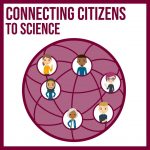Waste workers-otherwise known as sanitation workers-are often made invisible due to informal work arrangements. In India, as in other parts of the world, sanitation workers tend to be from the oppressed and marginalized communities with little access to healthcare and quality health services. This despite, their work being highly important to society and exposing them […]
In this episode of the Health Policy and Planning Podcast, LSHTM’s Public Engagement Manager, Karl Byrne is joined by our colleague Linet Okoth from LVCT Health. They talk about her paper “Policy and practices shaping the delivery of health services to pregnant adolescents in informal urban settlements in Kenya.” It’s a fascinating conversation that covers […]
In this episode, we hear from two PhD students from the ARISE Consortium. ARISE stands for accountability and responsiveness in informal settlements for equity, and is about promoting social change for improved health and wellbeing with communities and people living and working within urban informal spaces. This episodes guests: Bachera Aktar Assistant Director, The Centre […]
Despite gender equality policies at the national level in many African countries, there are persistent gender-based disparities, inequalities and exclusions faced by many women, particularly among low-income urban residents. And while urbanisation may offer greater opportunities for women – for example, in employment, access to services and changes in social and household dynamics – this […]
In this week’s episode we hear from our co-host Robinson Karuga in his role as a Research, Evaluation and Learning Manager at LVCT. Robinson has been part of a team implementing a participatory action research approach to improve health and wellbeing in two informal settlements in Nairobi. Robinson shares with us: How data collected with community […]
In this week’s episode we talk about COVID-19 and how travel and public health restrictions presented challenges to ensuring that urban marginalised voices were heard by researchers and policy makers in India and Bangladesh. Our impressive guests Professor Sabina Faiz Rashid and Senior Research Fellow Dr.Surekha Garimella discuss the importance of having established long-term relationships […]
In this week’s episode we will be discussing the intersections between research and activism for social change. With our guests Vinodkumar Rao and Joseph Kimani, we will be seeking to understand how lessons from activist approaches can be applied within research and vice versa. We will also explore how power, participation and social justice fits […]
In this week’s episode we are talking to Inviolata Njoroge from LVCT Kenya and Shrutika Murthy from The George Institute for Global Health (TGI), India. They have shared their experiences of using visual methods and storytelling to bridge the power-laden distances between lived realities of waste pickers, child headed households, the elderly and people with […]
In this episode we hear from our co-host Robinson Karuga on his role as a Research, Evaluation and Learning Manager at LVCT. Robinson has been part of a team implementing a participatory action research approach to improve health and wellbeing in two informal settlements in Nairobi. Robinson shares with us: How data collected with community co-researchers […]
In this episode we talk about COVID-19 and how travel and public health restrictions presented challenges to ensuring that urban marginalised voices were heard by researchers and policy makers in India and Bangladesh. Our impressive guests Professor Sabina Faiz Rashid and Senior Research Fellow Dr Surekha Garimella discuss the importance of having established long-term relationships […]







